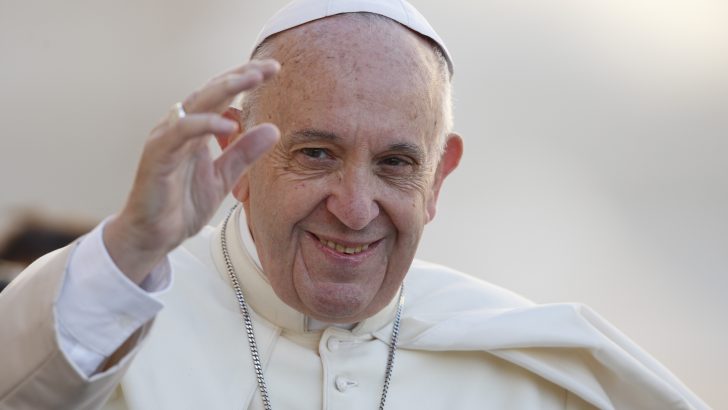Christians have a crucial part to play in revitalising Europe, Pope Francis said, warning against “particular and nationalist agendas”.
The Pope pointed to the two World Wars that killed millions in Europe, describing peace as a “fragile good”, saying “particular and nationalist agendas risk thwarting the courageous dreams of the founders of Europe”.
However, he made no mention of Britain’s decision to leave the EU or of Catalan’s independence movement which led to the Spanish government’s decision to oust the former administration who have fled to Belgium.
The Pope said an EU that, when facing crisis, fails to recover a sense of being a single community that sustains and assists its members, “would miss out not only on one of the greatest challenges in history, but also one of the greatest opportunities for its future”.
In relation to refugees and immigrants, he appeared to warn against anti-immigration parties, saying: “Extremist and populist groups are finding fertile ground in many countries. They make protest the heart of their political message, without offering the alternative of a constructive political project.”
Meeting
The Pope made his comments at a meeting of politicians and Church leaders in the EU. The October 27-29 meeting, organised by the Holy See and the Commission of the Bishops’ Conferences of the European Community (COMECE), was dedicated to how the Church could contribute to the future of Europe.
“To speak of a Christian contribution to the future of the continent means, before all else, to consider our task as Christians today in these lands which have been so richly shaped by the Faith down the centuries,” he said
Christians must ask: “What is our responsibility at a time when the face of Europe is increasingly distinguished by a plurality of cultures and religions, while for many people Christianity is regarded as a thing of the past, both alien and irrelevant?”
He said that Christians are called to revitalise Europe and to revive its conscience, not by occupying spaces – this would be proselytising – but by generating processes capable of awakening new energies in society.
In essence, Christians can be the soul, the animating force, within the body of every community.
This force of joyful hope rooted in Faith can help communities understand and promote the basic, critical principles needed to thrive: the dignity of every person; the importance of community; the true place of dialogue; a culture of inclusion; and solidarity, development and peace



